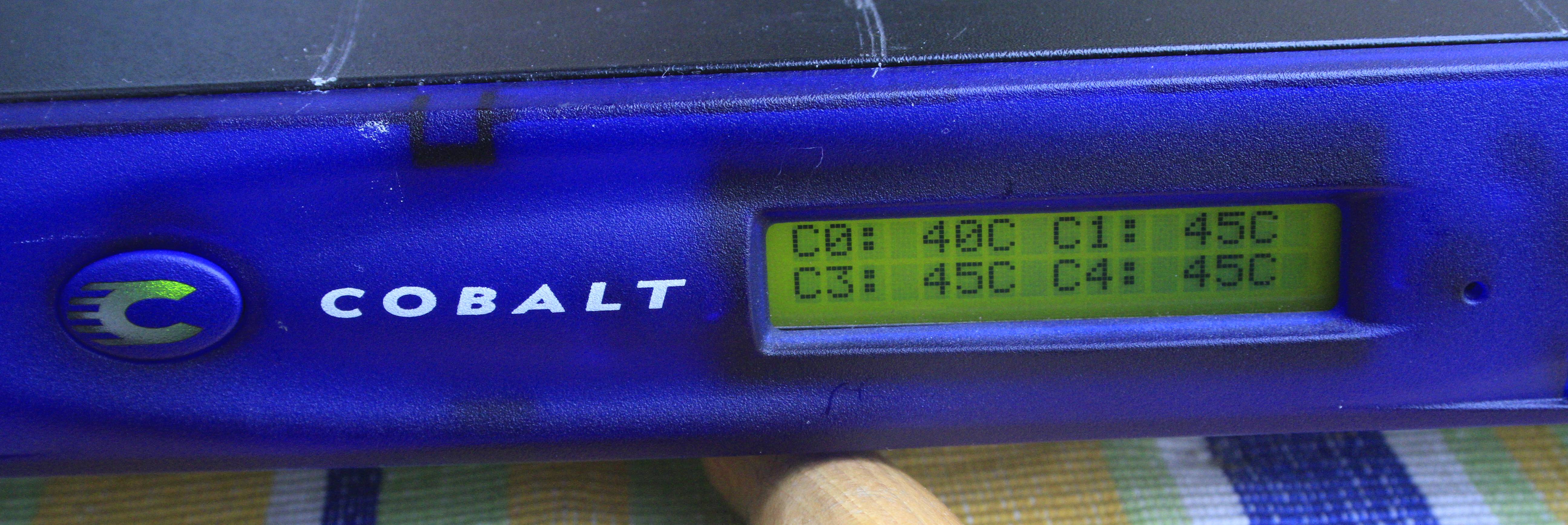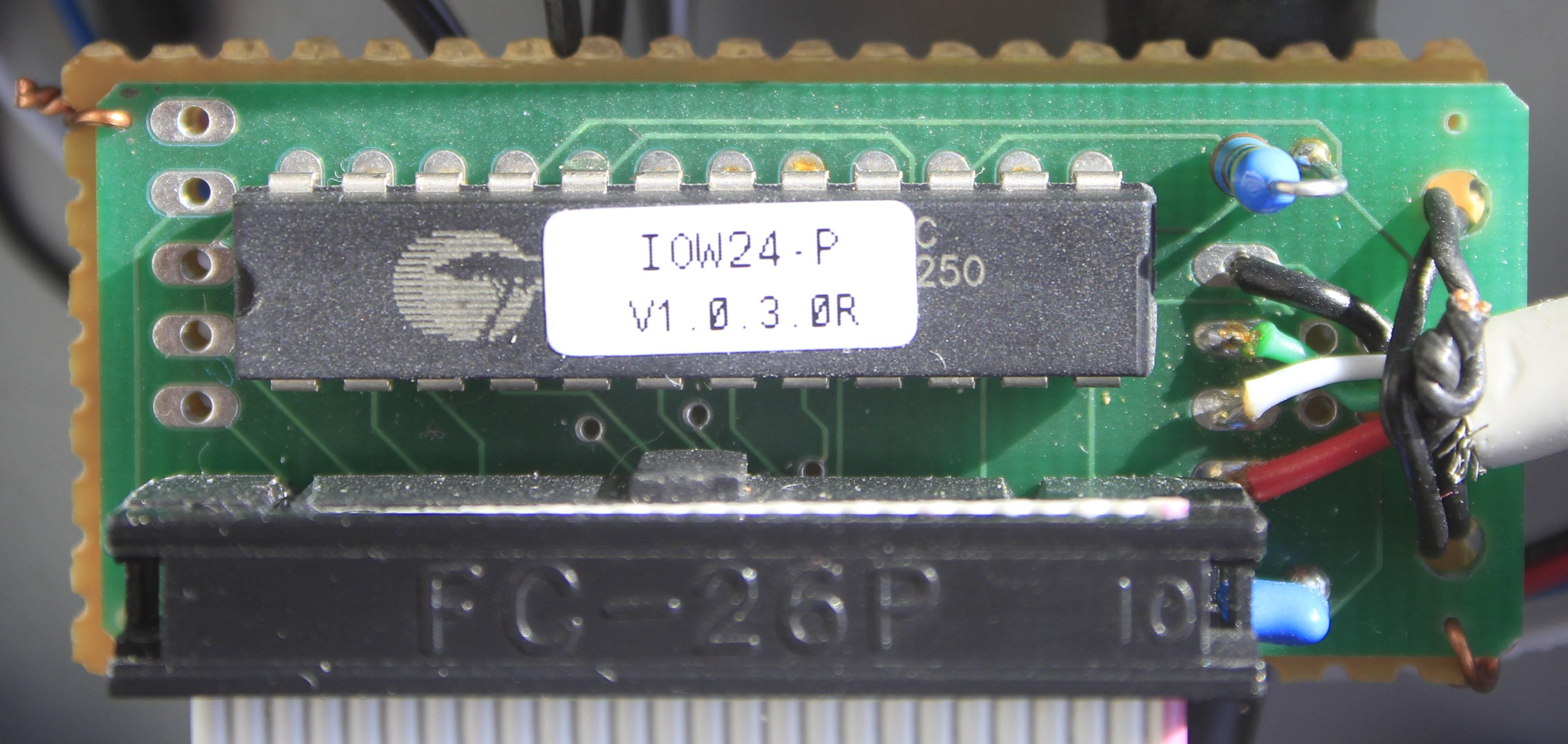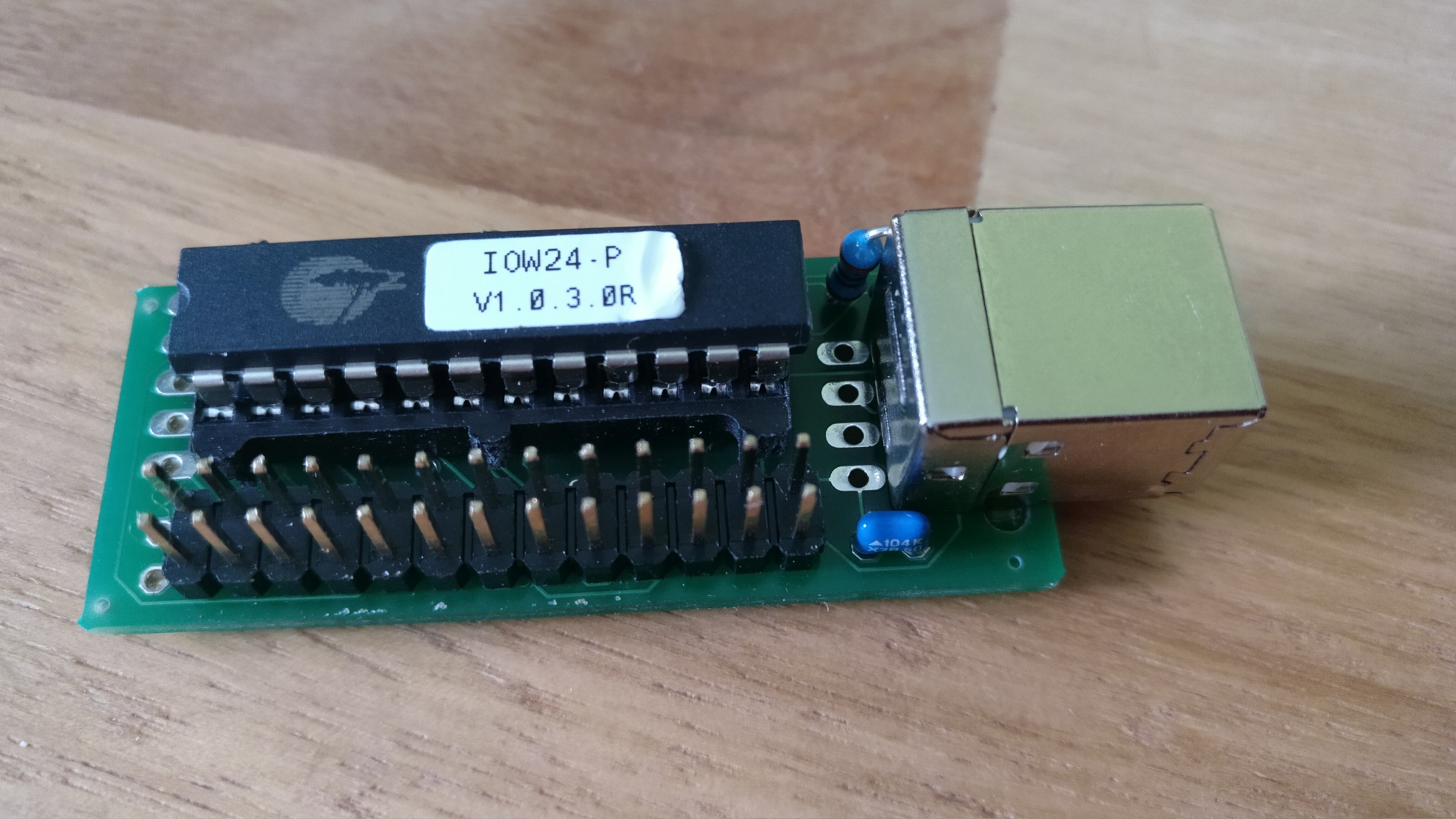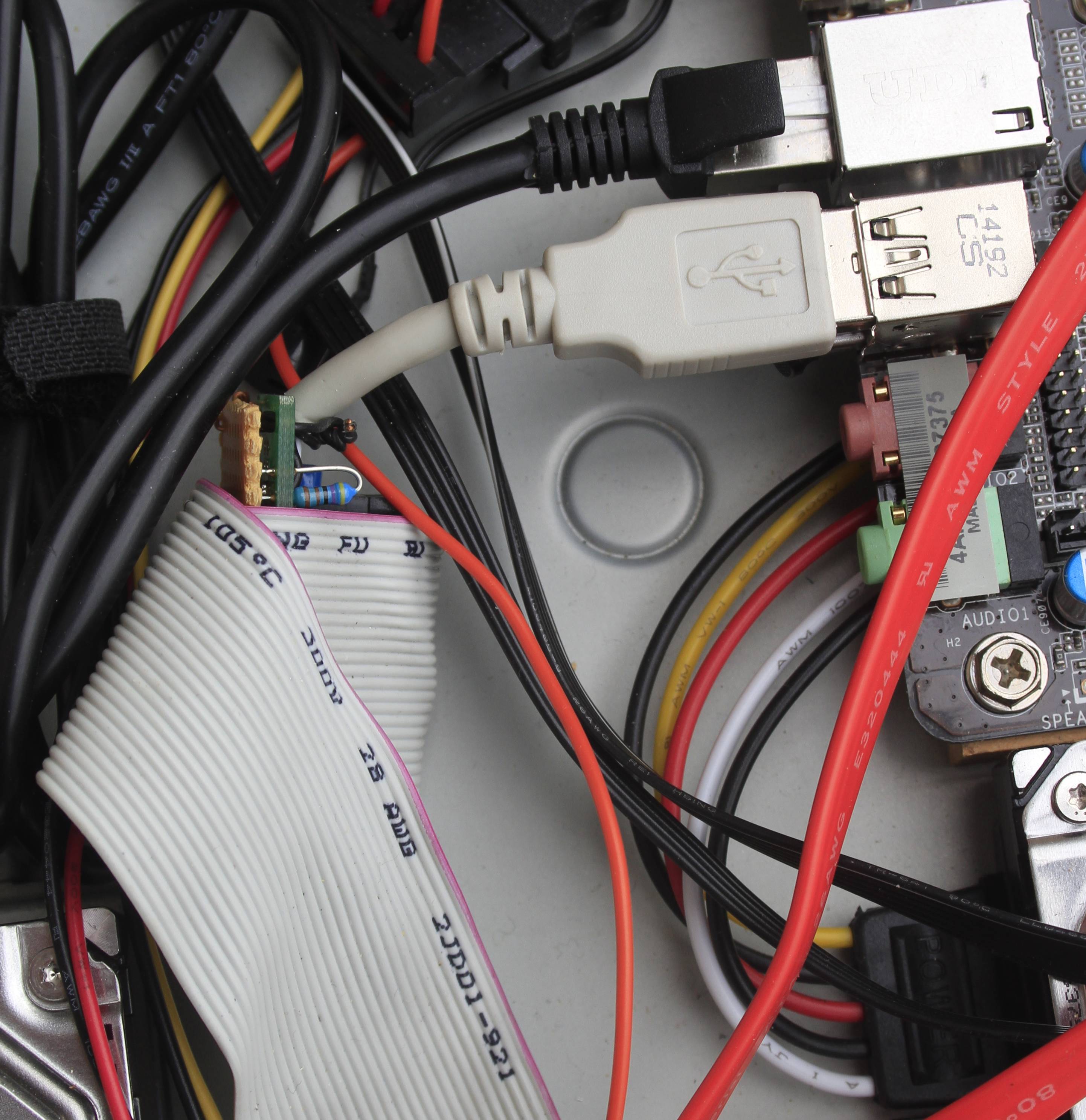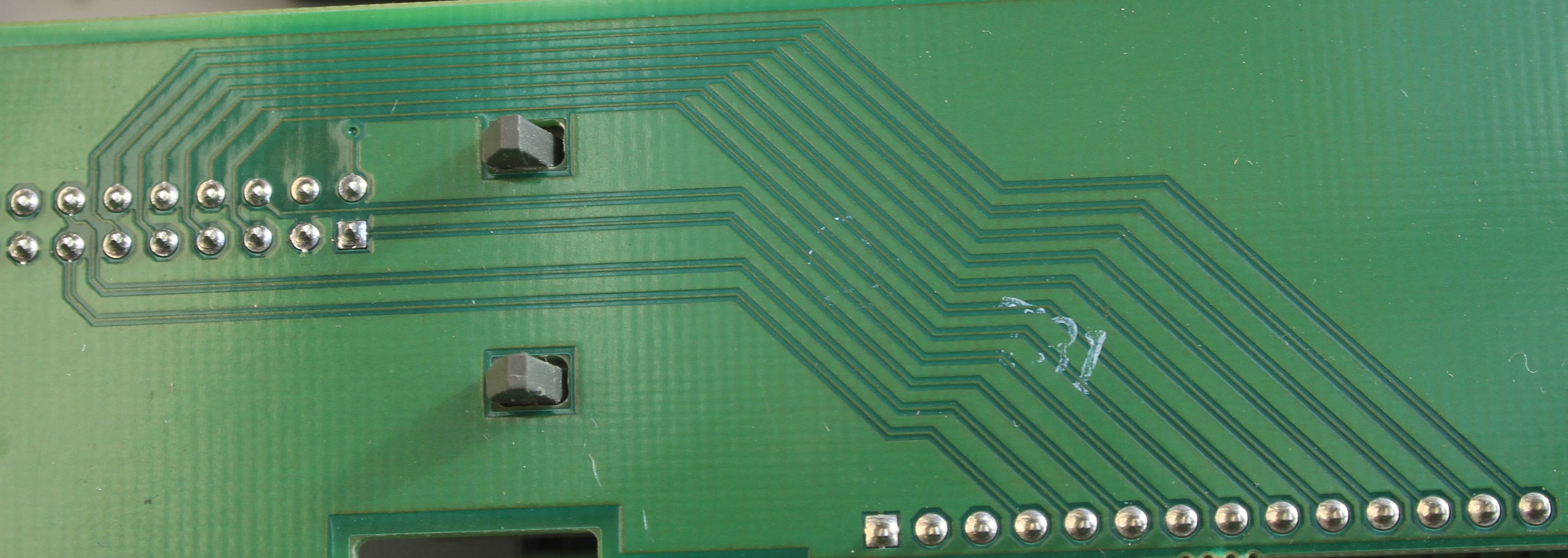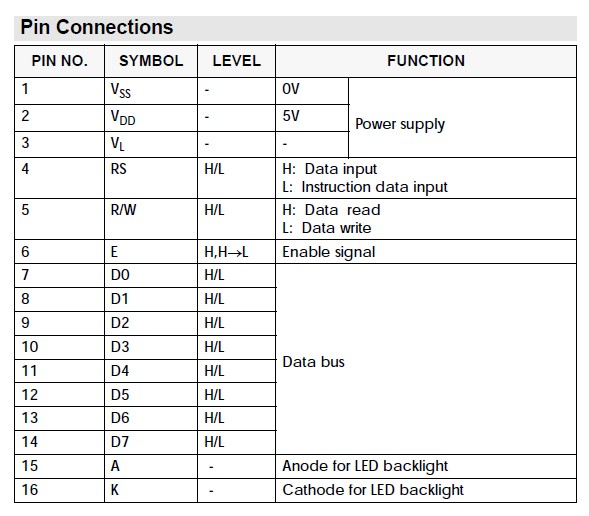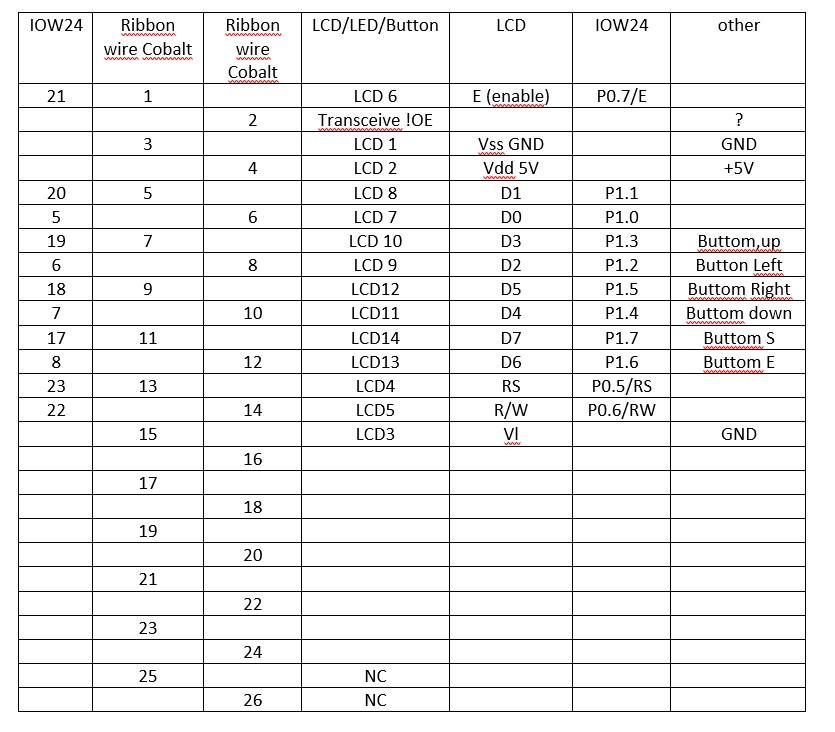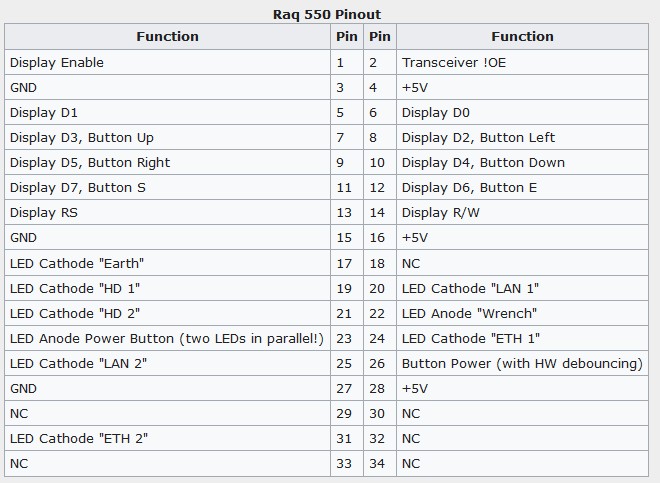About 15 years ago I developed a adapter to interface Sun Cobalt RaQ 4 LCD display with a normal mainboard by USB self-made adapter.
Remark: This project is outdated because the IO-Warrior24 from Code Mercenaries is not longer in stock and sold. :-(
This github page should document how to use the Sun Cobalt display in general.
Eagle 6.6 files (http://eagle.autodesk.com/eagle/software-versions/10)
https://raw.githubusercontent.com/bohnelang/SunCobaltLCDDisplayUSB/main/eagle/iow24/iow24my5.sch https://raw.githubusercontent.com/bohnelang/SunCobaltLCDDisplayUSB/main/eagle/iow24/iow24my5.brd
Eagle library for IO-Warrier: https://raw.githubusercontent.com/bohnelang/SunCobaltLCDDisplayUSB/main/eagle/iow24/io-warrior.lbr
Ordered my mini serie from LitOn https://www.leiton.de/kalkulation.html
All Linux kernel > 2.6 have a native support for the I/O-Warrior USB devices! There is no extra installation of a kernel modul. thus is is PNP - Plug and Play :-)
iowarrior kernel module: https://github.com/torvalds/linux/blob/master/drivers/usb/misc/iowarrior.c
System
[ 33.071956] iowarrior 3-2:1.0: IOWarrior product=0x1501, serial=00002357 interface=0 now attached to iowarrior0
[ 33.080787] iowarrior 3-2:1.1: IOWarrior product=0x1501, serial=00002357 interface=1 now attached to iowarrior1
[ 33.080933] usbcore: registered new interface driver iowarrior
Program to interface LCD
#include <stdio.h>
#include <string.h>
#include <stdlib.h>
#include "lcd_tools.c"
IOWKIT_HANDLE iowHandle = NULL;
static char* ledOnPacket = "\x00\xF7\xFF";
static char* ledOffPacket = "\x00\xFF\xFF";
static char* enableRC5Packet = "\x0c\x01\x00\x00\x00\x00\x00\x00";
static char* disableRC5Packet = "\x0c\x00\x00\x00\x00\x00\x00\x00";
int
main(int argc,char** argv)
{
iowHandle = IowKitOpenDevice();
if( !iowHandle )
{
fprintf(stderr,"could not open io-warrior");
return 0;
}
IowKitWrite( iowHandle, 1, enableRC5Packet, 8 );
IowKitWrite( iowHandle, 0, ledOnPacket, 3 );
enableIIC( iowHandle, TRUE );
enableLCD( iowHandle, TRUE );
initLCD( iowHandle, 4 );
DisplayControl( iowHandle, TRUE, FALSE, FALSE );
EntryModeSet( iowHandle, TRUE, FALSE );
if(argc==2){
setDRAMaddressByLineNumber( iowHandle, 1 );
LCD_PrintLine( iowHandle, argv[1] );
} else if(argc==3) {
setDRAMaddressByLineNumber( iowHandle, 1 );
LCD_PrintLine( iowHandle, argv[1] );
setDRAMaddressByLineNumber( iowHandle, 2 );
LCD_PrintLine( iowHandle, argv[2] );
}
exit(0);
}
Call this program by:
#> lcd_write "Hello" "World".
Display system health and other information on front display of the Cobalt - call this in crontab:
#!/bin/bash
# apt install lm-sensors
# apt install install hddtemp
# apt install dnsutils
# apt install wget
SELF=$$; (sleep 58 && kill -9 $SELF 2> /dev/null )&
LCD=/usr/local/bin/lcd_write
HDDTEMP=/usr/sbin/hddtemp
HOST=`hostname`
IPADDR_EXT=`nslookup $HOST | grep "^Address: " | sed s/"Address: "//g`
MYIIP=`wget -q -O - 'https://checkip.amazonaws.com/'`
IPADDR_EXT=$MYIIP
if [ "$IPADDR_EXT" = "" ]; then
IPADDR_EXT="IP Addr Not Set"
fi
HOSTNAME=`cat /etc/hosts | grep $HOST| awk {'print $2'} `
IPADDR=`cat /etc/hosts | grep $HOST| awk {'print $1'}`
DELAY=2
for I in 1 2 3
do
TEMP=`$HDDTEMP -n /dev/sda`
TEMP="Disk1: $TEMP C"
TERM_DISK=`$HDDTEMP -n /dev/sdb`
TERM_DISK="Disk2: $TERM_DISK C"
TERMCPU=`sensors | tail -2 | awk {'print $3'}`
LOAD=`cat /proc/loadavg | awk {'print $1" "$2'}`
LOAD="Load: $LOAD"
DATE=`date +"%R %F"`
DEV="/"
DISK1=`df -h $DEV | tail -1 | awk {'print $5" "$3" "$4'}`
DISK1="$DEV: $DISK1"
DEV="/data"
DISK2=`df -h $DEV | tail -1 | awk {'print $5" "$3" "$4'}`
DISK2="$DEV: $DISK2"
$LCD "$HOSTNAME" "$IPADDR"
sleep $DELAY
$LCD "$HOSTNAME" "$IPADDR_EXT"
sleep $DELAY
$LCD "$DATE" "$LOAD"
sleep $DELAY
$LCD "$TEMP" "$TERM_DISK"
sleep $DELAY
$LCD "$DISK1" "$DISK2"
sleep $DELAY
$LCD "CPU: $TERMCPU" ""
sleep $DELAY
done
Nice article in German language about IO-Warrier ICs: https://www.heise.de/ct/artikel/Draht-nach-draussen-288792.html
It is a pitty that the most ICs of IO-Warrier are not longer available. But I guess this is the way of live - DIL and DIP ICs seems not longer assembeled for the consumer market. Especially the USB I/O Controller like CY7C63513C (https://www.digikey.de/product-detail/de/cypress-semiconductor-corp/CY7C63513C-PVXC/428-2253-5-ND/1154401) from Cypress Semiconductor Corporation are at their end-of-live. There are less breadboard friendly ICs to find online. At least is the IO-Warrior28 https://www.codemercs.com/de/io/full-speed from Code Mercenaries.
It seems that in a time of Arduino and Rasberry PI with its own GPIO-ports any native I/O-USB controllers like the IO-Warrier are not longer necessary. There are some I/O controller with I2C interface still available.
If you know a uptodate breadboard friendly USB I/O controller please let me know.
